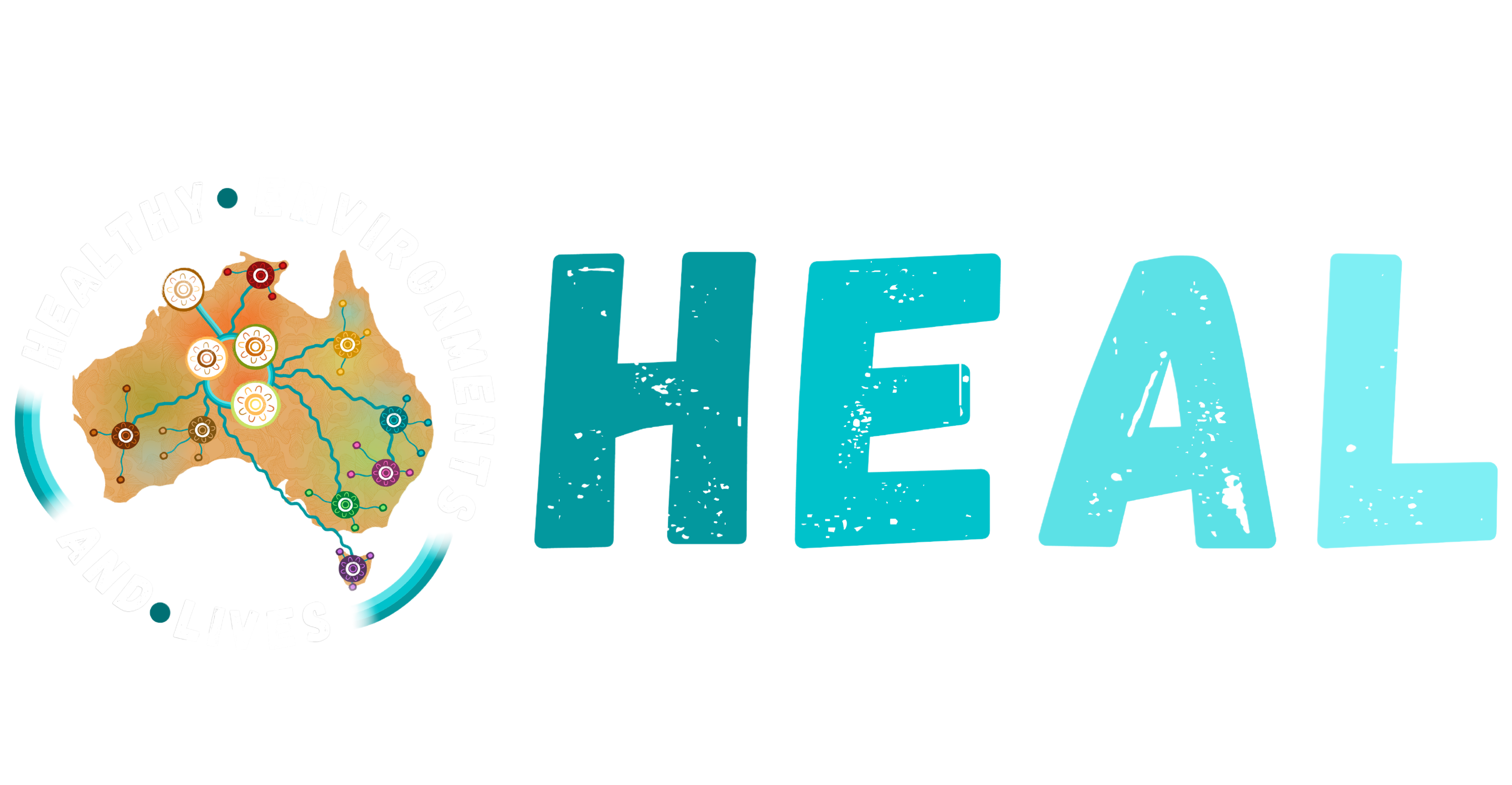HEAL
Knowledge
Exchange
AusEnHealth
Prof Kerrie Mengersen, Dr Aiden Price and colleagues from the AusEnHealth collaborative initiative
AusEnHealth is Australia’s first national digital environmental health decision support platform. This open-source resource is designed to enable policy makers, health managers, and researchers identify vulnerable populations, predict future disease burden, and plan for a changing climate in a coordinated, timely manner.
To find out more, visit AusEnHEalth and Frontiers in Science
Australia’s Environment - Report
An annual report on the changing condition of our natural resources and ecosystems
The annual Australia’s Environment Report summarises a large amount of observations on the trajectory of our natural resources and ecosystems. On the website you can find a national summary report, as well as report cards for different types of administrative and geographical regions. In the accompanying data explorer, the spatial data can be viewed as maps, accounts or charts by region and land use type and downloaded for further use.
To find out more, visit Australia’s Environment – Indicators
Australia’s environment report - scorecards
An annual report on the changing condition of our natural resources and ecosystems
The annual Australia’s Environment Report summarises a large amount of observations on the trajectory of our natural resources and ecosystems. On the website you can find a national summary report, as well as report cards for different types of administrative and geographical regions. In the accompanying data explorer, the spatial data can be viewed as maps, accounts or charts by region and land use type and downloaded for further use. Scorecards are available for states & territories, federal and state electorates, local government areas, statistical areas, natural resources management regions, National Parks, Ramsar wetlands, drainage basins, river regions and bioregions.
To find out more, visit Australia’s Environment - Scorecards
Australian Glossary On Health And Climate Change
The Human Health and Social Impacts (HHSI) Node, The NSW Adaptation Hub
Cross-disciplinary research and collaboration on health and climate change must be enhanced and supported to aid decision making for optimal adaptation and mitigation. An improved, shared understanding of the terminology used in the field enhances the capacity for effective collaboration.
The glossary aims to support collaborations on health and climate change by facilitating communication in building cross-sectoral partnerships with research end-users and translating research outcomes into policies and practices in the Australian context.
To find out more, visit Croakey Health Media
Clean Air and health Research Data and Analysis Technology (CARDAT)
Data, methods and tools to support research and analysis of air pollution and health
The Clean Air and health Research Data and Analysis Technology (CARDAT) is a collection of IT infrastructure that enables easy data sharing and reuse, and reproducible data analysis. It is an online research platform that collates a wide array of population, health and environmental datasets with a collection of analysis tools and methodology resources. The data in CARDAT includes air pollution, weather and built environment data in Australia and internationally. This platform enables collaboration between researchers and policy makers.
To find out more, visit CARDAT
Designing a net zero roadmap for healthcare: technical methodology and guidance
Healthcare without Harm
This document supports any national or regional health authority to measure its healthcare emissions and develop a Paris-compatible decarbonisation roadmap. Developed as a part of our Operation Zero project, in collaboration with Arup and three national and regional health ministries/authorities, this methodology was developed for the healthcare sector by the healthcare sector.
To find out more, visit Designing a net zero roadmap for healthcare
Inhaler toolkit
Irish Doctors for the Environment
This tool was developed by a respiratory multidisciplinary team. The project was titled ‘A Communication tool on inhalers and carbon footprint’ and was funded by the Spark Innovation Programme. This communication tool provides clinicians with concise, evidence-based information on the lifecycles of inhalers and the associated carbon footprint. The purpose of this tool is to empower clinicians and their patients to reduce the carbon footprint of inhalers while improving patient care.
To find out more, visit Inhaler Toolkit
IPCC reports
The Intergovernmental Panel on Climate Change
The Intergovernmental Panel on Climate Change (IPCC) is the United Nations body for assessing the science related to climate change. It prepares comprehensive Assessment Reports about the state of scientific, technical and socio-economic knowledge on climate change, its impacts and future risks, and options for reducing the rate at which climate change is taking place. It also produces Special Reports on topics agreed to by its member governments, as well as Methodology Reports that provide guidelines for the preparation of greenhouse gas inventories.
To find out more, visit IPCC
Mapping climate change and health into the medical curriculum: co-development of a “planetary health-organ system map” for graduate medical education
Doctors for the Environment Australia
It is imperative that educating the medical workforce to understand, address and mitigate the health effects of climate change is integrated into all levels of medical education. DEA medical students and doctors co-developed a curriculum resource that maps climate change and health to the classically used organ-system teaching structure. It is an easy-to-use tool for medical educators to locate clinically relevant teaching points in each major body system.
To find out more, visit Mapping Climate Change and Health into the Medical Curriculum

